- Home
- Raymond Benson
Zero Minus Ten rbb-1 Page 20
Zero Minus Ten rbb-1 Read online
Page 20
Bond ran up the steps past the statue of Sun Yat-sen and into the Memorial Hall. The interior lobby was narrow and dimly lit. He went straight into the arena-style auditorium, which had two balconies and a stage at one end. It was dilapidated with a decidedly musty smell, and was empty and dark.
He ran down the centre aisle to the stage. He jumped on to the apron and ran stage right into the wings. A staircase led down to what was some sort of green room. It was probably meant to be a dressing room for performers or speakers. He heard the guards enter the auditorium above, calling out to each other in Mandarin. Sooner or later they would find him.
Bond made his way to the other side of the auditorium basement, then slowly climbed the staircase there to the other side of the stage. The guards were still searching the aisles. He slid along a counterweight system to the back of the stage behind a faded, torn cyclorama. What he was looking for was there—a loading door for bringing scenery in and out. Bond pushed back the bolt and kicked it open. He jumped down to the pavement and ran around the side of the building to a car park. Tourists were walking from their vehicles to the front of the building. Many of them stopped and stared at the bloody figure of a Caucasian running across the pavement.
It was then that a black sedan screeched into the car park and stopped in front of him. A Chinese man in a business suit jumped out and held the back door open.
“Get in, Mr. Bond!” he said in English. “Hurry!”
Bond dived into the back seat, and the car squealed out into the busy street. There were two of them—a driver and the man who had spoken. Bond thought they looked familiar. He had seen them at the initiation ceremony in Kowloon City.
The one in the passenger seat looked back at Bond. His brow was creased.
“What happened to you?”
Bond was not sitting down. He was on his knees, facing out of the rear window.
“They gave me a beating,” Bond said. “Where are we going?”
“Back to Kowloon, of course. Try to relax. It’s a three-hour drive.”
He didn’t know how he could possibly relax in this position, but had to admit he felt a hundred times better just being out of the hellhole from which he had escaped.
Bond watched the traffic behind the sedan and saw no signs of pursuit. It was curious that there hadn’t been many soldiers at Wong’s building. He counted himself extremely lucky. If an entire regiment had been there, he would probably be dead by now.
The man in the passenger seat used a cellular phone and spoke Cantonese into it. Bond heard him say that they had picked up the gweilo. The man turned to Bond.
“Mr. Li wants to know if you got it?”
Bond said, “Tell him I’ve got what he wants.”
The car spent the next half-hour navigating the crowded roads of Guangzhou and finally made it out onto the open highway southeast towards Dongguan and Shekou.
Bond thought of his friend T.Y. The man’s death couldn’t have been prevented, and Bond had merely done his duty and played by the rules.
He thought of the ironic parallel of the situation. England, by agreeing to hand over Hong Kong to China, had also acted honourably and dutifully. By doing so, however, she had turned her back on the people of Hong Kong.
SEVENTEEN
MEN OF HONOUR
9:00 P.M.
By the time the hovercraft from Shekou arrived at the China Ferry Terminal in Tsim Sha Tsui, the world’s governments had learned of Bond’s actions that day. The story relayed over hotlines all around the globe was that General Wong Tsu Kam had been murdered by a “mysterious” Brit. There was speculation that it was the same “Brit” who had killed the two visiting officials in Hong Kong on 13 June. China was accusing England of espionage and murder. At least four witnesses in the Chinese military force testified that they had been forced by an armed but wounded Caucasian to let him leave the governmental building located in the heart of Guangzhou. Several soldiers had been killed inside the building. For the time being, China was keeping the news from the press, but there was no telling when it might be leaked.
The Prime Minister attempted to assure China that no British “hit man” was operating on their soil. The idea was absurd—England didn’t want a confrontation with China. China refused to listen.
Adding fuel to the fire was the release of James Pickard, Esquire, at 6:00 p.m. He had been blindfolded and taken from an undisclosed location in Kowloon to Kai Tak Airport to be left standing on the Departure level. He was unharmed, but immediately went to the police and reported what had happened to him. An hour later, he was surrounded by reporters and photographers. He would receive fifteen minutes of fame, and then would be shipped back to London in the morning. This bit of public spectacle only added to the series of mysteries that had plagued Hong Kong over the past month.
Government officials in Hong Kong were seriously alarmed. What if the allegations were true? The Chinese troops lining the border were under new command within the hour, and word had it that tanks were now moving up to the line. An early takeover was a frightening possibility. It was important to keep the people in the dark, but it was entirely likely that some reporter would stumble across the news at any time and splash it across the papers. A colony-wide panic had to be avoided at all costs.
The Royal Navy was due to move in to Victoria Harbour within twenty-four hours, joining the Hong Kong naval forces. Britain had sent a destroyer and two Duke Class Type 23 frigates to join the three RN Peacock Class patrol craft permanently deployed in Hong Kong. The colony’s own naval force was operated by the Marine Region of the Royal Hong Kong Police, mostly a Coast Guard Force responsible for the territorial waters of Hong Kong and all of the surrounding islands. As far as the public was concerned, the Royal Navy’s presence was simply to be on hand for the transition, but in reality they were on full alert. The Royal Marines had been dispatched and would be forming a line south of the Chinese border. The United States issued a private statement urging restraint, but her nearby fleets were watching and waiting. The Japanese government offered to mediate, but China refused to acknowledge the gesture.
As for James Bond, getting out of China had been relatively simple. The car had driven to Dongguan, where they stopped at a small hotel so James Bond could shower, dress his wounds, and change clothes. Li had sent yet another Armani suit for 007 to wear. After a stand-up meal at a food stall, the group continued along the superhighway to the rapidly expanding Shekou. There, they boarded a hovercraft to Kowloon. A new passport had been prepared for Bond (complete with a false exit stamp from Hong Kong Immigration), this time in the name of John Hunter. The presence of the other ethnic Chinese deflected any suspicions on the part of Chinese Immigration that Bond might be the man wanted for General Wong’s murder.
A car drove Bond from the hovercraft terminal to Li’s office building in Kowloon City. The Cho Kun greeted him as an old friend. He smiled broadly and clasped Bond’s hand.
Bond handed over the document without saying a word. He was tired and in pain, and didn’t relish the idea that he had done something to help a Triad. He was angry with himself.
“Here it is,” Bond said. “I can’t imagine it’s worth much now.”
Li inspected the document with awe and wonder. He held it gingerly, as if it was a new-born baby. Bond could swear that tears came to the man’s eyes.
“Thank you, Mr. Bond,” he said. He meant it.
Bond didn’t wait for Li to offer to make him a drink. He went to the cabinet and poured himself a glass of vodka.
“You know, Mr. Li, the Hong Kong Police will catch up with you sooner than you think,” Bond said in Cantonese.
“I have taken action to avoid that. I have not been passive while you were in China sticking your neck out for me. At approximately 8:30 this evening, the EurAsia Enterprises warehouse at Kwai Chung Container Terminal was destroyed.”
“What?”
Li shrugged. “There was a fire … or something. It blew up. There is noth
ing left there. No evidence at all.”
“I see.”
“The police were already on to something. One of the shipping employees talked after learning he would be laid off after the handover. A story was already due to hit the papers tomorrow. EurAsia Enterprises will be accused of participating in drug-smuggling. If our friend Guy Thackeray were still alive, he would probably be under investigation. It is lucky I have friends in the press. I thought it best to obliterate any incriminating evidence.”
“So your little drug-running operation is dead?”
“That one is, certainly. It is all right, I do not mind. To tell the truth, I have been searching for a way to end that vicious circle. It was very profitable, but I have other means of income. I can find another method.”
“You mean, you’ll just find another way to prey on the weaknesses of the human condition.”
Li ignored the insult. Instead he grinned broadly. “Oh, have you heard the latest news from China? I have a source who works at Government House. Beijing has issued a demand! If the British government does not turn over the so-called murderer, there will be … trouble.” Li looked like a Cheshire cat.
“Why does that make you so happy, Li?” snapped Bond. “Do you realize what my government will do to me when they learn I was responsible? It would be nice if we could discredit General Wong somehow.”
“You are right,” Li said. “After you left this morning, I received something that will help your case. It is the result of a plan I set in operation months ago. The god Kwan Ti has been good to us. It is no coincidence that this came into my hands today of all days.”
Li opened a desk drawer and pulled out a brown envelope. Bond opened it and found several photographs and a cassette audio tape inside.
“Those were taken by some of my men at General Wong’s facilities in the Golden Triangle. For insurance … in case I ever needed it. It is unfortunate that two brothers died getting me that material.”
There were several black and white photos taken with a hidden camera of Wong inspecting poppies in a field, looking in a microscope in a lab, and holding bags of heroin. There was also a series of photos of Wong speaking with another Chinese man. They were standing inside the lab, near the desk of a chemist.
“Look at the photo. There is Wong, speaking to one of his lieutenants. Do you see the man sitting next to him, with the microscope? He is a brother. The conversation was recorded. It is all in Cantonese. They speak about the entire operation. Wong names not only EurAsia Enterprises as the carrier, but proudly states that he was the mastermind of the scheme. Egotistical bastard! Another brother had a camera in a packet of cigarettes and got this picture. An old trick, but it worked.”
“My God, Li,” Bond said. “This could save Hong Kong! We must get this to your friends in the press tonight!”
“It shall be done. In twenty-four hours, China will be eating her words and apologizing. Imagine … one of their top generals involved in drug-smuggling! They will need to save much face! Now, what can I do for you, Mr. Bond? What can I do to dispel this notion you have that I am some kind of evil person?”
“I’ll think about it,” he said. “First I need to ring London and face my boss’s wrath. Then I’d like to see Sunni.”
Bond was shown into a private office with a phone. He dialled the access number, and was connected to a secure line. After a moment, he heard the familiar voice of Bill Tanner.
“James! Where the hell have you been? M is about to have a stroke!”
“It’s a long story, Bill.”
“You’re going to have to tell it to her. Hold on. She wanted to speak to you as soon as we heard from you.”
“Great. All right, put her on.”
There were a few pips, and then he heard the voice of the woman who would not be happy to hear what he had to say.
“Bond?” she asked.
“Yes, ma’am. I’m here.”
“Where are you?”
“I’m in Kowloon.”
“What the hell is going on, 007? Do you know anything about this general who was killed in Guangzhou?”
“Yes, ma’am.”
There was a pause at the other end of the line. “And what do you know about it?”
“The general was involved with Guy Thackeray and the Dragon Wing Society in a drug-smuggling scheme. It was as we suspected, ma’am. EurAsia Enterprises was connected with the Triad, but it looks as though this Chinese general was as much a part of it as anyone. A story is going to break in the next couple of days, complete with photos. The man was as corrupt as they come. I have good reason to believe he was behind the terrorist acts and might have been the instigator of Guy Thackeray’s murder.”
“007, were you in Guangzhou today?”
“Yes, ma’am.”
“I see.” Bond could imagine her eyes narrowing as she sat in her office in London.
She continued, “The PM has been all over my back today. I will cover for you the best I can, 007. I hope you can tell me you were not caught on surveillance cameras?”
“I don’t think so, ma’am. If it’s any consolation, Wong was responsible for the death of T.Y. Woo and he damn near killed me. I couldn’t have completed the mission without going to Guangzhou, ma’am.”
“I don’t doubt your motives, Bond. I have a problem with your temerity. You’ve always had a reputation of being a loose cannon, 007, and now I have the privilege of experiencing your foolhardiness first hand. I want you to stay put, Bond. Don’t leave the colony. Captain Charles Plante of the Royal Navy will contact you at the safe house on June the 30th. He will get you out and back home. The front door of the safe house has been repaired and the place cleaned up. The key will be taped inside the mouth of one of the Chinese lions in front of the shop. We’ve got Woo’s son out of the colony already. He’s on his way to England where he’ll live with a foster family.”
“Yes, ma’am.” He was under virtual house arrest! What the hell was he going to do for three days?
“Oh, and 007?”
“Yes?”
“You had requested a British passport for some tart, a Chinese girl?”
Bond tensed at the word “tart.” “That’s right, ma’am. She helped me. Saved my life, actually.”
“Well, forget her.” With that, M rang off.
Bond walked out of the room and back into Li’s office. He sat down on a large leather armchair. It still hurt to sit, but he was beginning to get used to it.
“You need some medical attention, Mr. Bond,” Li said. “I will have my doctor take a look at you.”
“Thanks,” Bond said, lost in thought. He was forgetting something and he was struggling to remember what it was.
“Where are the clothes I was wearing when I first came here?” he asked.
“They are here in the cupboard. Why?”
Bond got up and looked through them. He found what he was looking for in a trouser pocket. It was the map of EurAsia Enterprises’ Kalgoorlie gold mine. “Here it is,” he said. “I found this at the warehouse. Before spending the last two glorious days in your employ, Li, I had planned on leaving Hong Kong to take a look at this.”
Li took a look at it. “Australia?”
“I’ve got a nagging feeling that there’s something there that I need to see. That facility is part of this whole thing. The only problem now is how I’m going to get there.”
“I can get you to Perth,” Li said.
“You can?”
“I have two restaurants there. I have my own ’plane. I travel to Singapore, Tokyo, Australia, Thailand … wherever my businesses take me. No problem with Immigration.”
“How long is the flight?”
“A good ten hours to Perth.”
“Then we’ve got to get going. I want Sunni to come with me.”
“I shall be happy to provide this service for you, Mr. Bond. What you have done and endured for my sake has gone beyond the call of duty. You have acted most honourably. For this, I am
in your debt. You and the girl are free to go, of course, and I shall cancel the death warrant. We can provide you with false passports, as before.”
“What are you going to do with that document? EurAsia Enterprises is finished anyway.”
“I will probably go public and tell the true story of the company’s history. It will further discredit General Wong. He was attempting to acquire the company on his own, you know. Beijing was unaware of what he was doing. It will appear to them that he was straying even further towards capitalism. I will take over EurAsia Enterprises. There is still a powerful shipping organization in place there. I will rebuild it and make sure it stays legitimate. The important thing is that I have restored face with my ancestors. I have got back what belongs to my family. If nothing else comes of it, that alone is enough. Now, let us hurry if we are going to get you to Australia. I am anxious to repay you for your honourable act of courage today,”
“Let’s get one thing straight, Mr. Li,” Bond said. “You don’t owe me a bloody thing. You can talk all you like about honour, but let’s call a spade a spade. You’re nothing but a gangster, and I despise you and everything you stand for.”
“I feel the same way about you, Mr. Bond,” Li said with a wry smile. “Any business I have done with gweilo in the past was out of necessity. If I had ever been given a choice in the matter, I would not have done it. Your people came to our land and assumed control. It is now time for you to leave. I cannot say that I am sorry. But I must ask you to think about something. You must surely realize that if Hong Kong is to remain the capitalist money-maker in fifty years’ time that it is now, it will be up to the Triads to keep a check on the communists’ regulation of the territory’s economy. We will be the underground defence against human rights violations and any attempts to undermine the autonomy of Hong Kong.”
“You’re concerned with human rights? A man who peddles drugs and women? Spare me, please. I believe the Hong Kong people will do quite well on their own, Mr. Li. They are honest and hardworking. They will stand up to oppression.”

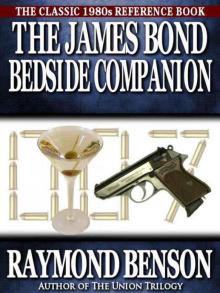 The James Bond Bedside Companion
The James Bond Bedside Companion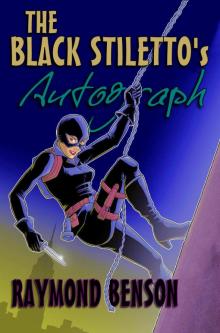 The Black Stiletto's Autograph
The Black Stiletto's Autograph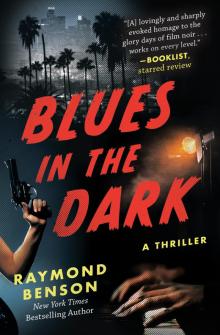 Blues in the Dark
Blues in the Dark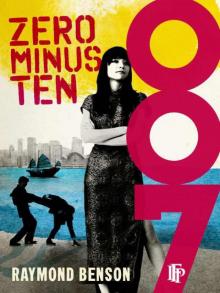 Zero Minus Ten
Zero Minus Ten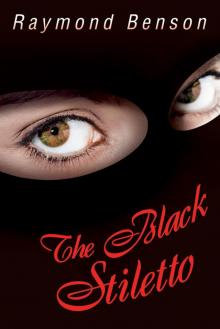 The Black Stiletto
The Black Stiletto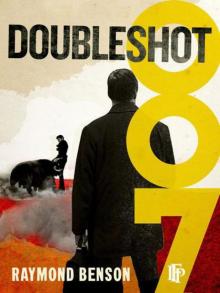 Doubleshot
Doubleshot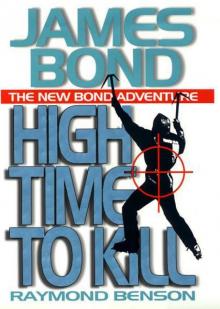 High Time To Kill rbb-3
High Time To Kill rbb-3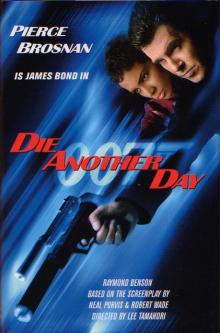 Bond Movies 07 - Die Another Day
Bond Movies 07 - Die Another Day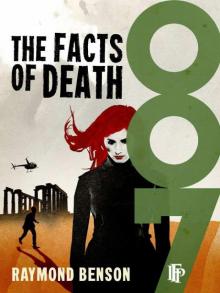 The Facts Of Death
The Facts Of Death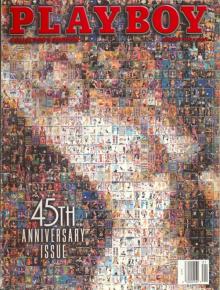 Midsummer Night's Doom
Midsummer Night's Doom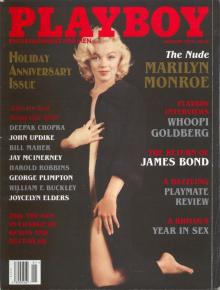 Blast from the Past
Blast from the Past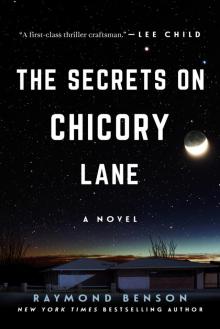 The Secrets on Chicory Lane
The Secrets on Chicory Lane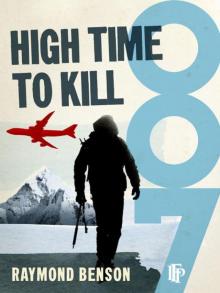 High Time To Kill
High Time To Kill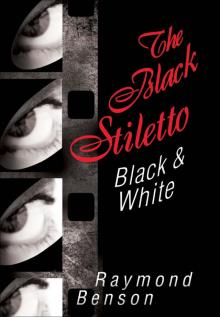 The Black Stiletto: Black & White
The Black Stiletto: Black & White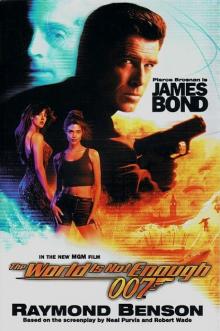 The World Is Not Enough jb-1
The World Is Not Enough jb-1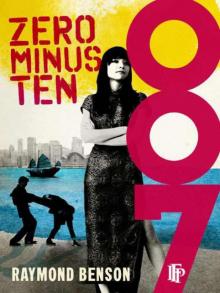 Zero Minus Ten rbb-1
Zero Minus Ten rbb-1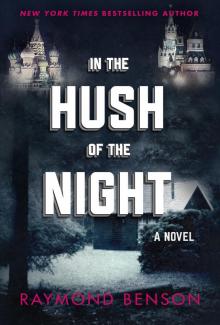 In the Hush of the Night
In the Hush of the Night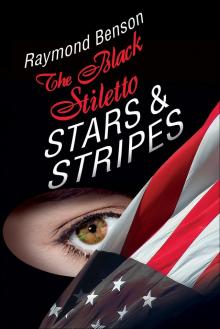 The Black Stiletto: Stars & Stripes
The Black Stiletto: Stars & Stripes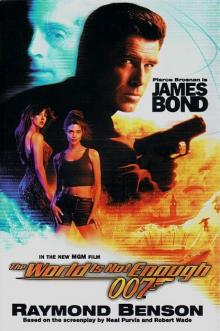 Bond Movies 06 - The World Is Not Enough
Bond Movies 06 - The World Is Not Enough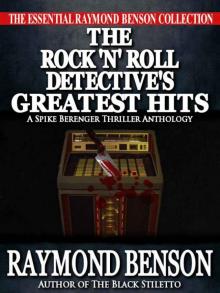 The Rock 'n Roll Detective's Greatest Hits - A Spike Berenger Anthology
The Rock 'n Roll Detective's Greatest Hits - A Spike Berenger Anthology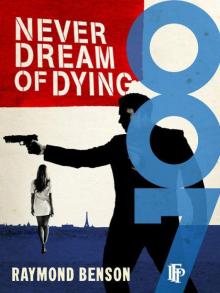 Never Dream Of Dying
Never Dream Of Dying